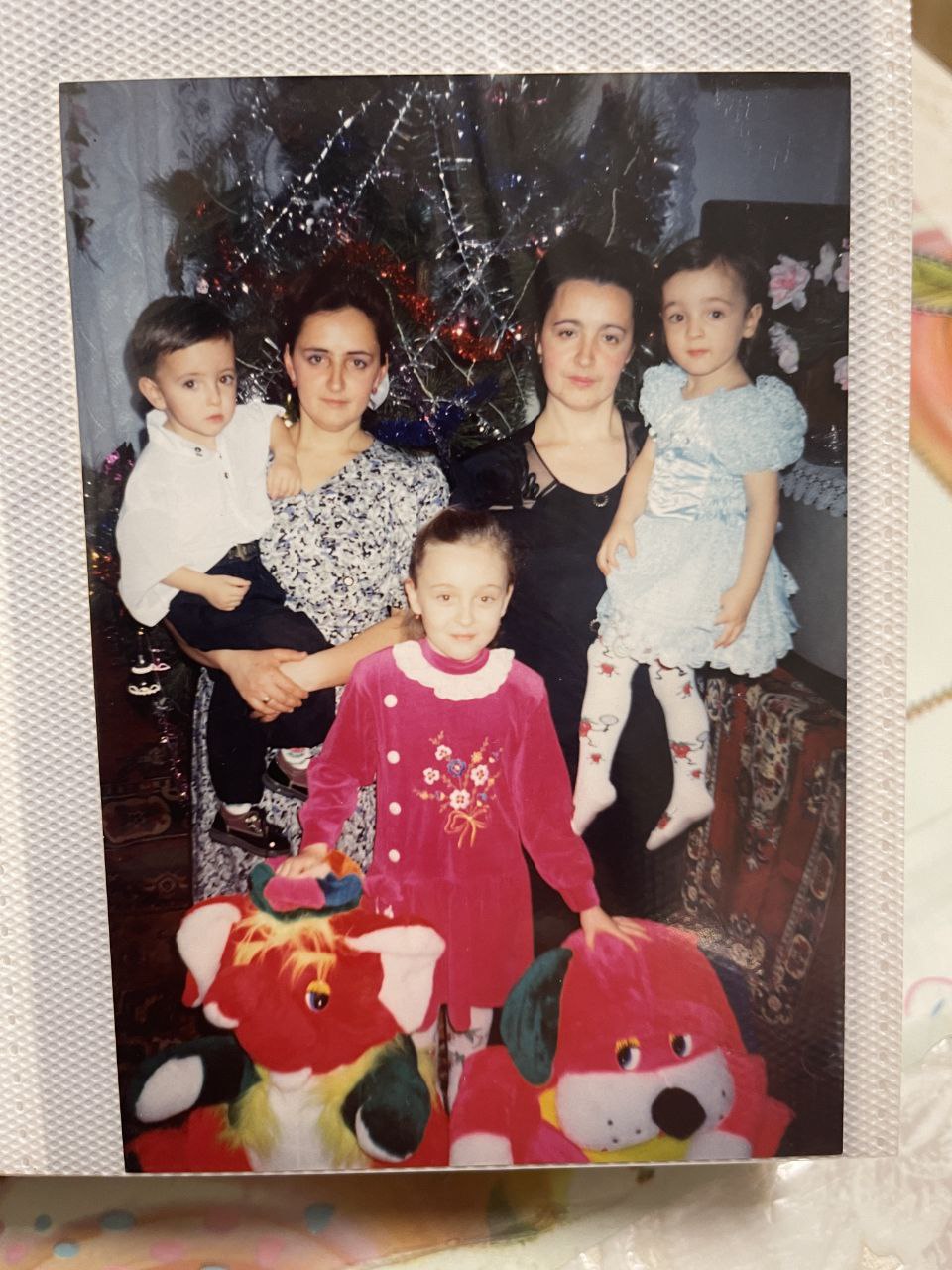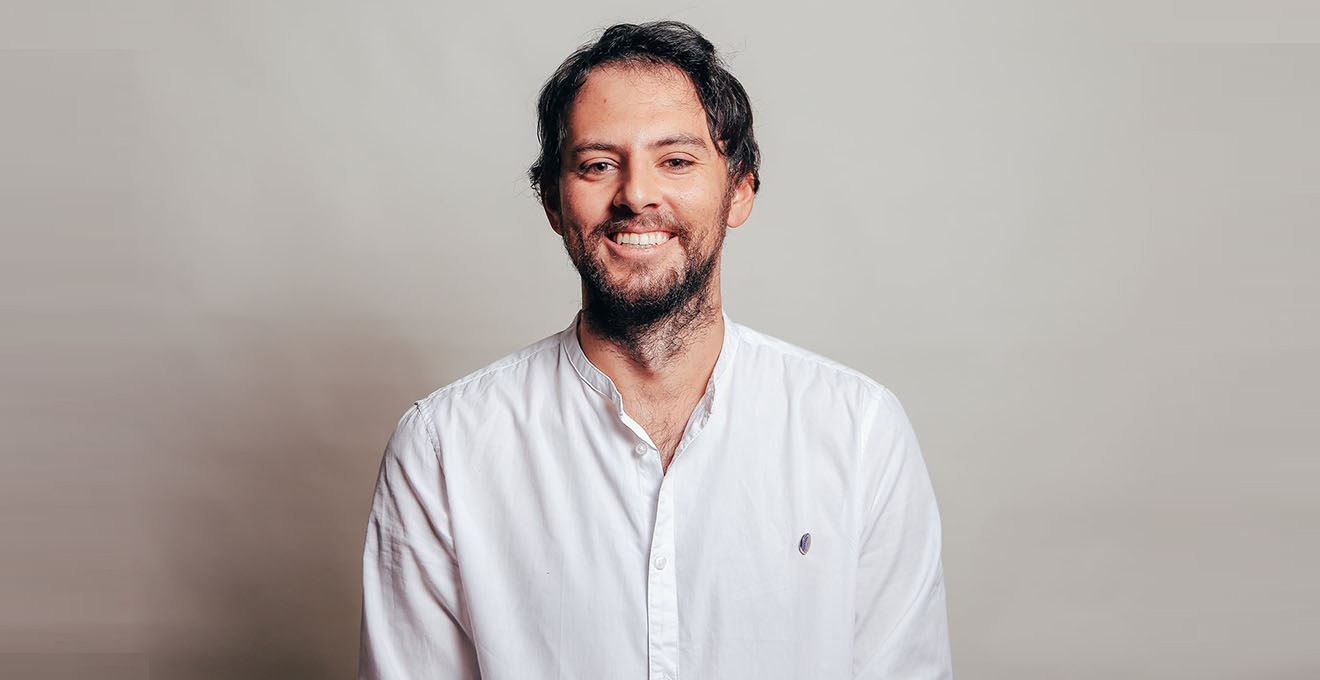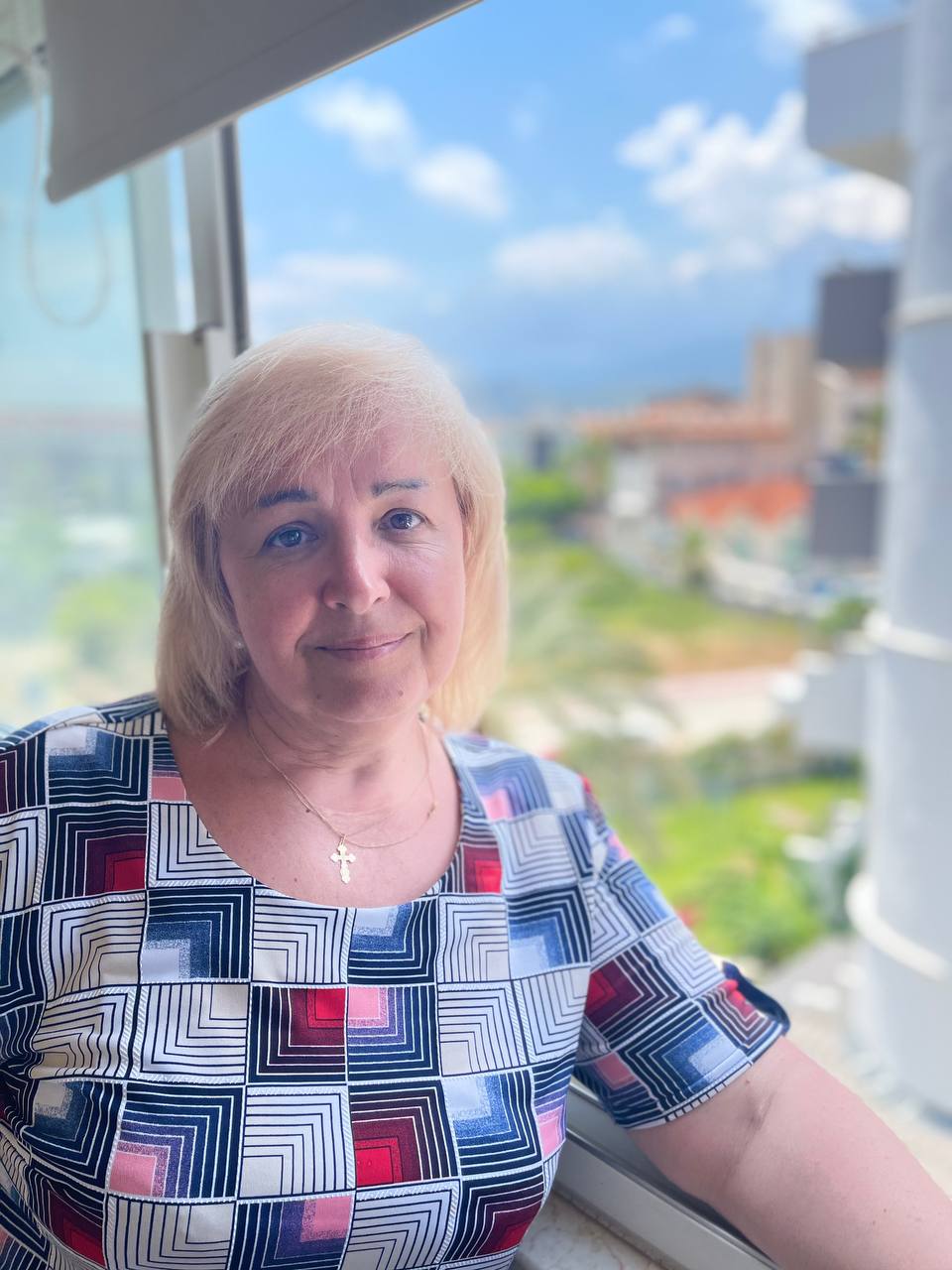Stories of Romani teachers who have made their dream come true
Memories of one’s school life bring about bright emotions in many people. That was the period when you met your first friends, when you experienced your first joy about your success and sometimes also your first struggles with your difficulties. When the grade you received defined your life. And many other pivotal moments, too. And all the way, your teachers are by your side. Not only are they teaching you but also directing you and sometimes even reprimanding you. Ahead of the 1st of September, Jianes has decided to share the stories of two pedagogues of Romani origin with its readers.
Olena Heorhiivna is a teacher of foreign literature and arts. She has dedicated about 35 years of her life to school and for this contribution into Ukrainian education, she was awarded the highest qualification category and the title of “Methodologist Teacher”. Even back in her childhood, little Olena was very much aware of the importance of education. Despite the fact that her mother was a Romani, she studied well and received vocational specialised education, and then a long-term career. Olena has decided to become a teacher early in the day. She admits that she modelled herself on her own teacher.
“Back in the 5th form, I had an amazing teacher, Anna Izrailivna Brodska. She was an erudite personality, an educated and intelligent woman. I liked her very much and I can say that her example inspired me to become a teacher. I made my choice back in the 6th form. My parents were very happy about that and very supportive. After I graduated from school, I got enrolled at Zaporizhzhia Pedagogic Institute (now University) which I finished With Honours. I started working at school in 1988 and I have not abandoned my profession even today”, — says Olena Heorhiivna with a huge smile on her face.
A year after he started her work, she went on a maternity leave and returned to work after the birth of her two daughters.
Biased attitude towards Romanis is something that Olena Heorhiivna deems to be incorrect, as there are indecent people in any ethnic group. Despite the fact that her grandfather was a nomadic Romani, she herself has never faced any discrimination and it is in her opinion that many things depend upon the person itself and on the person’s milieu.
“I know that Romanis face biased attitude in society, and that is something I deem to be wrong. In my life, I have never faced any negative attitude due to my ethnicity. I have three lady friends, also teachers, and I have never experienced any problematic attitude from them, nor from any other of my colleagues. I think that many things depend on the person itself. There may be, of course, some distance and some feeling of surprise, but I am an open kind of person and this is something that helps a lot in subsequent communication”, says the teacher.

In the years of their careers as educators, teachers have a lot of bright and touching stories. One such story is something Olena Heorhiivna has decided to share with us нами. Once upon a time she had to become the tutor of an 11th (high school) class instead of her lady colleague who left school to work for an elite private school elsewhere in the city. These changes caused a lot of troubles, as children who were well-accustomed to their previous class tutor were unwilling to get in touch with the new tutor. There was one problematic student in class whose behaviour and whose grades left much to be desired. Olena Heorhiivna was adamant in her efforts to bring the boy back to education and make him think about his future. The situation in question took place a year later, as the class was leaving school. This is something she still remembers.
“There was a concert dedicated to the Day of the Teacher. It was to take place in the school assembly hall. The celebration was attended by teachers, parents, and pupils. It was approximately in the middle of the concert that the door opened and the same boy entered the room. He was holding a huge bouquet of flowers which he gave me. That was the story”, — recalls Olena Heorhiivna.
Another touching story took place in 2015 when Olena Heorhiivna was seeing her class off. There was a large concert scheduled to take place on graduation day. Everything was according to the plan but the pupils wanted to prepare a surprise: a ceremony of roses.
“I was standing in the centre and each of them came over, gave me a rose, and said a couple of nice words. Then, even the boys were crying, as they expressed their gratitude for the time we had spent together. Yes, I did teach them something, and they taught me something, too. That was very, very touching”.
As Olena Heorhiivna admits, it is these moments that are most motivating. It is these pleasant words from her alumni which she hears after the years of laborious, tiring work, that make her forget about all the difficulties. She admits that working in the classroom is very much like educating a child. Initially, it tends to be very difficult but then, as the child grows, and you watch its first steps, hear his or her first words, you begin to understand that this is something that is yours—that it is you that have created this person. And then you see the fruit of your work. And this is something that gives you wings.
Janusz Panchenko is a Romani activist and a historian who worked as a social pedagogue in Kakhovka General Education School for a year and a half. He received his higher education at Zaporizhzhia National University, at the Faculty of History. His specialisation allowed him to teach at a school, so he choose a local school in Kakhovka. As he says, the thing that motivated him to work there was the considerable number of Romani pupils— there were 20% to 25% of them there at the time. Despite the fact that he was a historian by training, the City Department of Education recommended him to get a job as a social pedagogue.

“There were two huge Romani communities present in Nova Kakhovka: Servs and Crimean Roma. The school in question was situated in the district where they dwelled, so the share of Romani pupils in the school was quite considerable. I told the officials at the city’s Department of Education that it was there that I want to be employed. Any position but please some free time to work with children. Eventually, it became clear that it was the correct decision, as teachers do not have that much time to work with children extracurricularly”, — says Janusz Panchenko.
He admits that he went to work at school out of personal reasons. He just wanted to know more about the problems which the Romani children are facing at school, how the education process looks for them, and why might they lack motivation. There were extracurricular activities after classes—the so-called “Romani lessons”. These had rather informal vibes as the participants discussed language, culture, examined Romani songs, and so on. He has, however, failed to gather the children right away. Initially, they were just skipping classes.
“I went to work at school precisely due to the chance I had to work with these children, so when they did not come to my classes, I was very upset. Once upon the time it was raining cats and dogs. Since children did not come to my classes even when and if the weather was good, I doubted if there even was a necessity to come and check if anyone has come. All to my amazement, 8 (eight) pupils came to my class. That was the first time in three or four weeks of my work. Ever since, we started conducting such informal classes and gradually, more and more people attended them”.
Janusz worked there for a year and a half. He recalls that he experienced no discrimination whatsoever during that period. There were misunderstandings sometimes but even those misunderstandings were resolved.
“I cannot say that there was any discrimination towards Romani pupils. Sometimes, teachers just ignored the fact that utterances may cause discomfort. There was, for instance, this thing when teachers made a roll call, everyone by name and surname, and the Romani pupils were just named as a ‘batch’. But they always corrected themselves later. Sometimes, there might have been some sort of exaggeration, some sort of provoking by and between children but that was something one could hardly assess this way or the other.”
Out of his experience, he recalls a number of unpleasant situation at school, when teachers said distasteful about Romanis, in his presence. They did not know what the ethnic origin of a pupil was, so they dared assume that Romanis could just kill someone in some corner, or even eat.
He recalls that his greatest motivation was to see children getting interested in classes. This was something that inspired him to soldier on with his work. He felt an inspiration that urged him to go to school every day and look forward to classes. As time passed, the young man started to long for something greater, due to a number of reasons.
“Once I came home, I was already looking forward to the next morning, to be able to go to school tomorrow. But after a year and a half, I started longing for something greater—and it was then that I had the idea to create a Romani Youth Centre. This would be a place where we would pursue more or less the same activities we had been pursuing back at school—but now we would have a new platform for these activities. Teachers did not always agree to provide a classroom for our activities, whereas the Centre had fewer restrictions on our activity”.
After the full-scale invasion and the occupation of Nova Kakhovka, the invaders smashed open the door of the centre (which had only recently been completely refurbished) and established themselves inside. Janusz and his colleagues had managed to evacuate equipment, but the building itself is quite damaged. Today, Janusz is mostly involved in activism as he makes his ideas come true in the form of his projects. As far as returning to school is concerned, that is something he has postponed indefinitely, as his city is under occupation and the children and their parents have left the city, too.
See also
- Шелтери як шанс на новий старт: чому вони важливі для ВПО в Україні
- AURA: платформа для самоорганізації і захисту прав ромської спільноти за кордоном
- Ромські активісти – про новорічні та різдвяні традиції
- Репортажистка Єва Райська: «Через звичайні людські історії я хотіла показати глибші процеси».
- Новий центр підтримки ромів у Сумах: хто отримає шанс на освіту
- Письменниця Тімея Шрек: «Життя так склалося, що повертаюся до коренів».
- Танцівниця Вікторія Чорна: «Саме ромський танок допомагає людям просто вижити»
- Громадські активісти і дослідники — про ромську мову, перспективи розвитку та загрози
- Лінгвіст Михайло Ослон: «За свої мови носіям зазвичай доводиться боротися самотужки».
- Музикант Віллі Пап-молодший: «Американський джаз або ромський джаз...»
